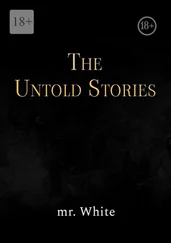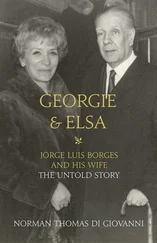Nesta was a healthy child. Running on the rock stone, him ‘not have no time fe sick’; brought up on a country diet of fresh vegetables and fruit, the only inkling of a prickly digestion was the vomiting that would occur whenever he ate eggs. As the baby started to grow bigger, Cedella would from time to time feel a twinge of loneliness or sadness that she didn’t hear more regularly from his father. Some help, some support, would have been nice, that was all. Even when he sent money – for a time four or five pounds would come most months, though it was by no means guaranteed – the envelope with the cash would be addressed to her father. As time went on, moreover, the money supply began to dwindle until Cedella hardly heard from her husband.
Still, Nesta was happy, running barefoot in the relatively car-free neighbourhood almost from when he could first walk. They would always say that Nesta loved to eat, and the boy was especially fond of his uncle Titus, who lived up by Yaya and always had plenty of surplus banana leaf or the spinach-like calaloo cooking on his stove. For a long time, Nesta’s eyes were bigger than his stomach. It became a joke in the area how he would take up a piece of yam, swallow his first piece and almost immediately fall asleep: ‘one piece just fill up his belly straightaway.’
Early on, there were signs that the child had been born with a poet’s understanding of life, an asset in a land like Jamaica, where metaphysical curiosities are a fact of life. When he was around four or five, Cedella would hear stories from relatives and neighbours that Nesta had claimed to read their palm. But she took it for a joke. How could this little boy of hers possibly do something like that? Though she did feel slightly shaken when she first heard that what Nesta told people about their futures invariably came true. There was District Constable Black from Stern Hill, for example: he told Cedella how the child had read his hand and everything he said had come to pass. Then a woman who had also had her palm looked at by Nesta confirmed this, forcing his mother to accept this strange talent of her jolly, much loved son, one that went a considerable way to defining him as an obeahman. ‘How he do things and prophesy things, he is not just by himself – he have higher powers, even from when he is a little boy,’ said Cedella Booker – as she later became. ‘The way I felt, the kind of vibes I get when Bob comes around … It’s too honourable. I always look upon him with great respect: there is something inside telling me that he is not only a son – there is something greater in this man. Bob is of a small stature, but when I hear him talk, he talk big. When it comes to the feelings and reactions I get from Bob, it was always too spiritual to even mention or talk about. Even from when he was a small child coming up.’
If Nesta had read his own palm and perceived what was to be the pattern of his life, he never told his mother. When he was almost five, however, Omeriah received a visit from Norval. What Cedella should do, he suggested, was to give up Nesta for adoption by Norval’s brother, the esteemed Robert, after whom he had been named. What was more, Cedella should guarantee that she would not attempt to see the boy any more. ‘It’s like he wouldn’t be my child no more! I said, “No way.”’
But then Norval came out to Nine Miles on another visit. He had had a different idea: what if the child were to come and stay with his father in Kingston for a time? He would pay for his education and let him benefit from all the opportunities and possibilities inherent in Norval’s own large, affluent family, who owned Marley and Co., Jamaica’s largest plant-hire company.
Cedella could see the advantages for her son in this. She felt she could go along with the plan. Nesta was duly delivered to her husband in Kingston. Hardly had the boy arrived, however, than he was taken downtown, to the house of a woman called Miss Grey. Norval Marley left his son with her, promising to return shortly. He never did.
All communication was then broken with the Malcolm family at Nine Miles. Cedella was deeply worried, fearing her son had been stolen from her – as indeed he had been. After almost a year, when Cedella had moved to Stepney, a village two or three miles past Nine Miles, a woman friend of hers went to Kingston to see her niece. The woman and her niece, who was called Merle, were together on the Spanish Town Road when they ran directly into Nesta. He had been sent to buy coal, he said, by the woman in whose house he was living. ‘Ask my mother,’ the boy continued, ‘why she don’t come look for me?’ And he told the woman his address.
When Cedella’s friend returned to Stepney that night she reported all that had happened. Nesta looked happy, she told Cedella: a little chubby, fat, healthy. A colossal sense of relief came over Cedella. ‘I was so tickled pink, I was so happy when she told me.’ But there was one problem: her friend had not had a pen or pencil with her. And she had forgotten the address where Nesta was living.
A solution was suggested – that Merle, the niece, might remember the address. Cedella wrote to her, and Merle replied straightaway that, although she couldn’t remember the number of the building, she knew Nesta was living on Heywood Street, in a poor downtown neighbourhood. Heywood Street was a short street, she added, and told Cedella that if she came up to Kingston, Merle would help her look for the missing child.
Accompanied by another friend from Nine Miles, Cedella arrived in Kingston one evening. Meeting Merle as arranged, Cedella discovered Heywood Street to be off Orange Street, and filled with stores. All these businesses were closed, however. Outside the first building that she came to, Cedella saw a man sitting out on the pavement. ‘I asked him,’ she said, using the name by which her son’s father called him, ‘if he knew a little boy who lived round there by the name of Robert Marley?’
‘Yeah mon,’ the man replied, looking behind him. ‘He was jus’ here a minute ago.’ Cedella’s heart lifted, as it filled with happiness.
Then she followed the man’s eyes. ‘There he was, just on the corner, playing. Nesta just bust right round: when he see it was me him just ran and hugged me so. And he said, “Mummy, you fatty.” I say, “Where you live?” He was very brisk, very bright. He say, “Right here. Her name is Mrs Grey: come and I’ll introduce you to her.”’
Mrs Grey was a heavyset woman. But she did not look at all well: she had lost almost all of her hair, and the skin peeled away in thin scales from both sides of her hands, one of the symptoms of ‘sugar’, as the widespread disease of diabetes is known in Jamaica; Mrs Grey also suffered from chronic high blood pressure. Robert, she told Cedella, had been her strength and guide, running errands for her, going to the market to fetch coal, as he had been on that day when he had been seen on the Spanish Town Road. He was going to school, Cedella discovered, though from what she heard it seemed as though his attendance was not regular. All the while, Mrs Grey said, she would find herself looking at Robert and wondering, ‘What happen to your mother? How is it that your mother never come to see you?’
‘I told her that I had to take him. And you could see how much she love him. She said she was going to miss him because he’s her right hand, to do any little thing for her. But she know that he have to leave. Then Nesta and I just go home. And we come back and everybody was glad to see him at his school, everybody.’
Once Nesta was back at school, however, he started to become very thin, suffering an inexplicable weight loss, as the extra pounds he had put on in Kingston mysteriously peeled away. On the advice of his teacher, Cedella began to feed the boy with a daily diet of goat’s milk. Whether it was that additional food supplement, or merely the healthier air and life he was living, he soon began not only to recover but to develop muscles and grow stronger and tougher, a country tough, that little-town soft gone.
Читать дальше












